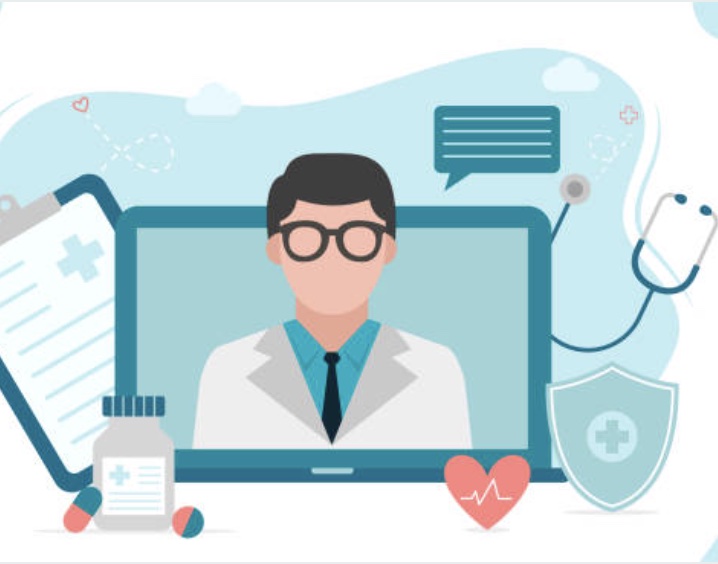Artificial Intelligence and ChatGPT in Healthcare

Artificial Intelligence (AI) is rapidly transforming the healthcare industry, and ChatGPT is at the forefront of this revolution. The potential of AI in healthcare is immense, and it has the potential to revolutionize the way we diagnose, treat, and prevent diseases. In this chapter, I will explore the ways in which ChatGPT is changing the healthcare industry and what the future holds for AI in healthcare.
The healthcare industry is facing numerous challenges, including an aging population, increasing demand for care, and rising healthcare costs. AI has the potential to address these challenges by improving patient outcomes, increasing efficiency, and reducing costs. For example, ChatGPT can help doctors and nurses diagnose diseases more accurately and quickly, reducing the time it takes to get a diagnosis and improving patient outcomes. Additionally, ChatGPT can help healthcare organizations make more informed decisions, reducing the need for unnecessary procedures and improving patient outcomes.
The healthcare industry is a complex and dynamic field, and AI has the potential to simplify many of the challenges it faces. For example, ChatGPT can help healthcare providers analyze large amounts of data, such as electronic medical records, to identify patterns and trends that can inform treatment decisions. This can help providers make more informed decisions, reduce the risk of medical errors, and improve patient outcomes.
Additionally, ChatGPT can also be used in telemedicine, allowing patients to receive medical advice and support from the comfort of their own homes. This can be especially beneficial for people who live in rural areas or have mobility issues, providing them with access to quality healthcare services. ChatGPT can also be used to help healthcare providers manage chronic diseases, such as diabetes and heart disease, by providing real-time monitoring and support.
Despite the many potential benefits of AI in healthcare, there are also ethical and regulatory concerns that must be addressed. For example, there is a risk that AI could be used to make decisions that unfairly discriminate against certain populations, such as minority groups or individuals with disabilities. There are also concerns about the privacy and security of patient data, as well as the need for transparency and accountability in the development and deployment of AI systems.
In this chapter, I will explore these ethical and regulatory challenges and how they are being addressed. I will also discuss the need for collaboration between healthcare providers, government agencies, and technology companies to ensure that AI is used in a responsible and ethical manner. The goal of this book is to provide a comprehensive overview of ChatGPT and its impact on the healthcare industry, making it accessible and informative for all readers.
Understanding ChatGPT: A Brief Overview of What ChatGPT is and How it Works
ChatGPT is a language model developed by OpenAI that has the ability to generate human-like text based on input data. It has been trained on a massive amount of data, allowing it to generate text that is similar to what a human would write. ChatGPT has been used in a variety of applications, including customer service, marketing, and healthcare.
At its core, ChatGPT is a machine learning algorithm that uses a deep neural network to generate text. The neural network is trained on a massive amount of data, allowing it to understand the relationships between words, phrases, and sentences. When given an input, ChatGPT uses this understanding to generate text that is similar to what a human would write.
ChatGPT is designed to be flexible and scalable, making it well-suited for use in a variety of applications. For example, ChatGPT can be used in customer service to provide customers with fast and accurate responses to their questions. It can also be used in marketing to generate compelling content that engages and informs customers.
In healthcare, ChatGPT has the potential to transform the way we diagnose, treat, and prevent diseases. For example, ChatGPT can be used to analyze electronic medical records and identify patterns and trends that can inform treatment decisions. It can also be used in telemedicine to provide patients with real-time support and advice.
Time will explore the potential impact of ChatGPT on the healthcare industry. This will include a discussion of how ChatGPT can be used in telemedicine, disease management, and medical research. I will also examine the benefits of ChatGPT in healthcare, such as improved patient outcomes, reduced medical errors, and increased access to quality healthcare services.
In addition to discussing the potential benefits of ChatGPT in healthcare, I will also address the potential risks and challenges that must be overcome. This will include a discussion of ethical and regulatory concerns, such as the need for transparency and accountability in the development and deployment of AI systems. I will also examine the need for collaboration between healthcare providers, government agencies, and technology companies to ensure that AI is used in a responsible and ethical manner.
(Next: ChatGPT in Telemedicine: Improving Access to Healthcare Services ) coming soon… stay tuned.

